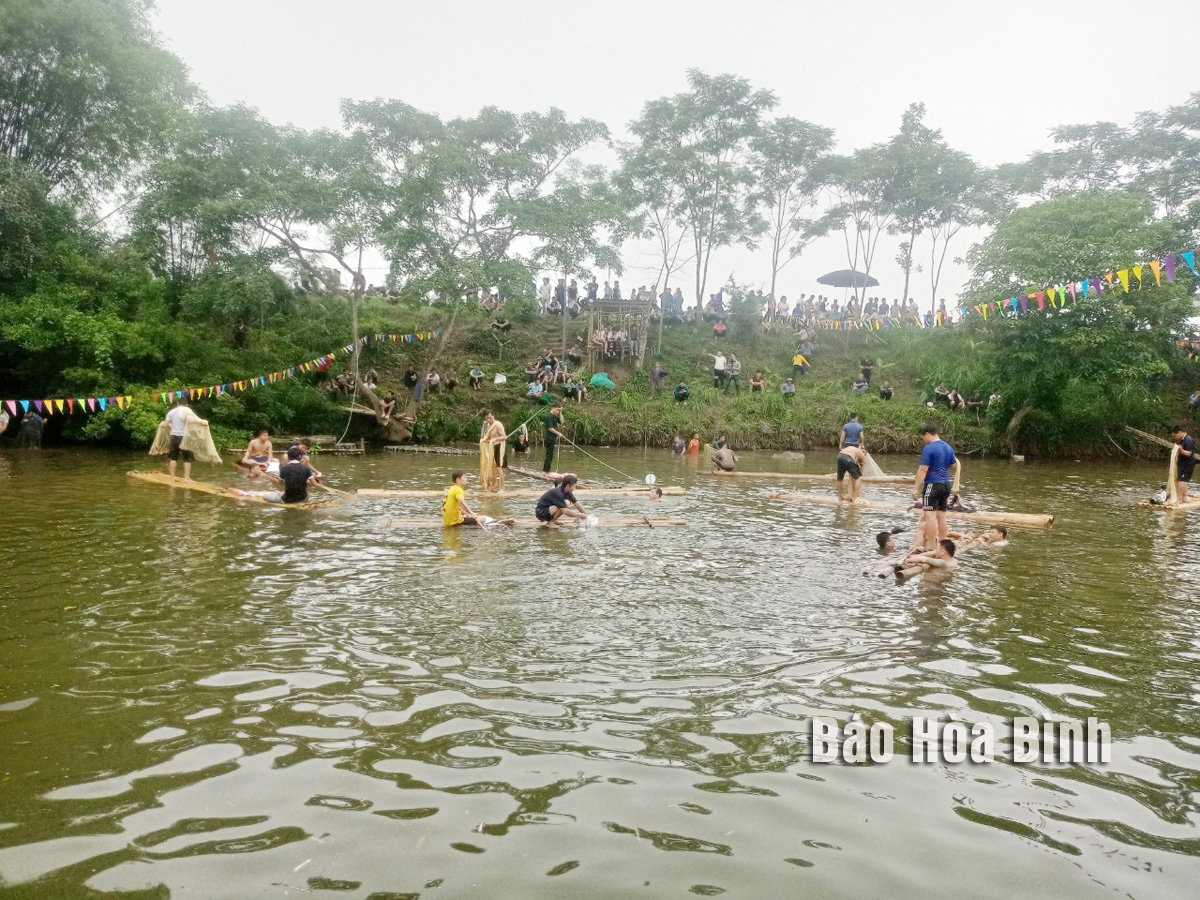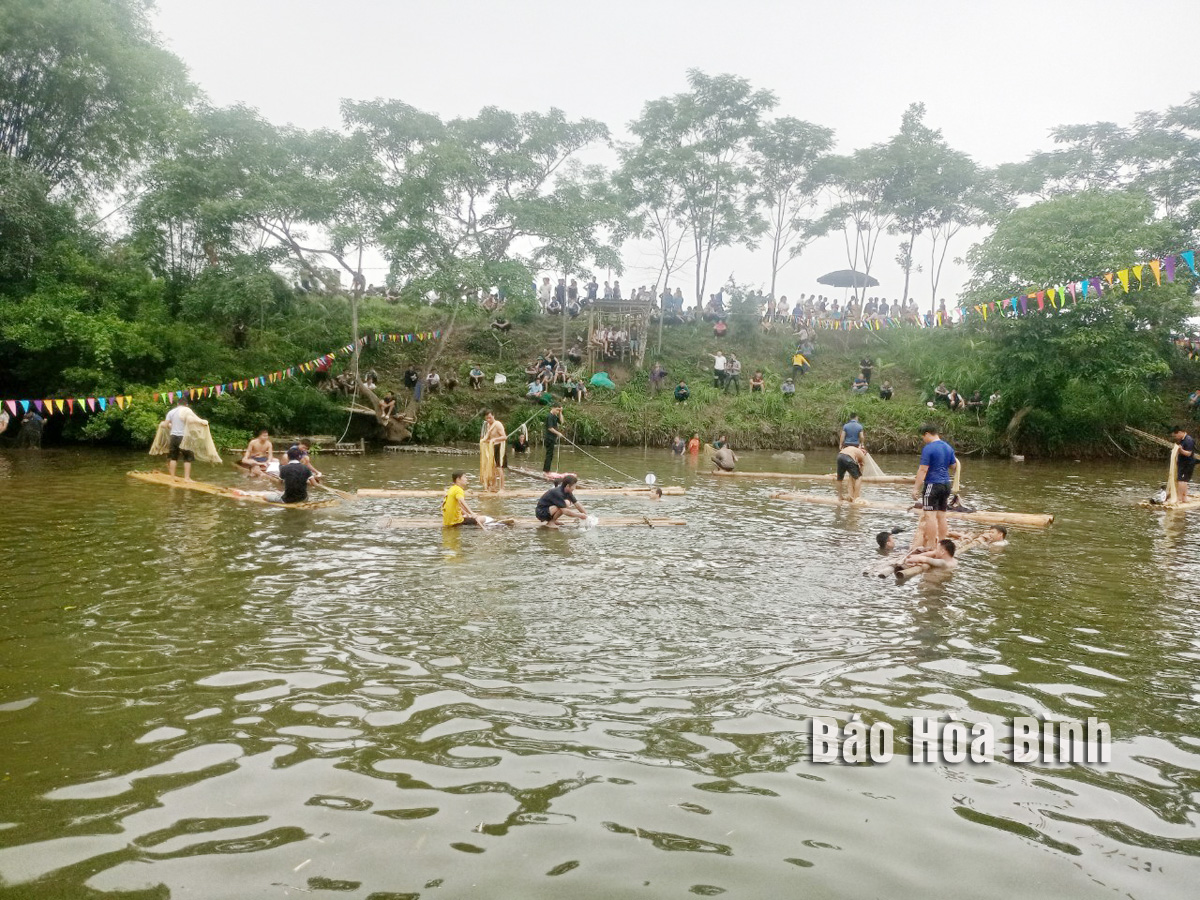



The fishing net competition at the traditional stream fishing festival in Lo Son commune in 2024.
In 2024, the festival took place on May 6 (March 28 of the lunar calendar), including a ceremony and a festival. The ceremony took place at Khoang Lo temple in Tan Lap hamlet. The shaman performed a ceremony to thank the gods, the leảth god, the tutelary god, and the ancestors for bestowing a year of good rain, good wind, and good crops. Mr. Bui Van Eo, the artisan of Mo Muong in Tan Lap hamlet, said: "Since the ancient time, the organization of the festival has been solemnly carried out. The stream fishing festival in March is also known as the ceremony of going down to the fields to weed rice after plowing and transplanting the spring crop, when the rice plants are strong, the people in the area organize the collective fishing in Bo and Khoang Lo streams. The biggest fish is offered to worship the tutelary god at the temple praying for a year of good rain, good winds, good harvests, healthy people, and ant it was required 5 big fishes. The ceremony is carried out solemnly and with full ritual at the temple, with the hope that the cool Cai stream is a breeding ground for many fish species, with the aim of widely spreading the propaganda on preserving and conserving the ecological environment and natural resources to the people”.
The festival takes place early in the morning at the yard in front of the temple with the folk music activities such as Gong ensemble, Doi singing, Thuong Rang – Bo Meng singing… and folk games including raft rowing competition, fishing net competition, fishing competition...; Introducing and displaying the culinary stalls with the unique dishes of Muong ethnic people. Nowadays, there are some more sports such as swimming, volleyball, soccer...
Ms. Bui Thi Chon from Tan Lap hamlet says: "The traditional stream fishing festival in Lo Son commune is one of the very unique festivals of Muong people in Tan Lac. The festival is held not only to show the connection and exchange between the community but it also shows the attitude and responsibility between the people and the nature mother and to be immersed in the nature. At the same time, it is an opportunity for the people to have fun and strengthen the community solidarity.” Every year, Mrs. Chon takes part in the festival. Coming to the festival, she not only gets to live in the unique cultural space of Muong Tló people, but she also enjoys the entertainment activities and satisfies her spiritual cultural needs.
Mr. Bui Xuan Truong, the Chairman of the People's Committee of Lo Son commune, says: Currently, due to the modern media, the traditional stream fishing festival in Lo Son commune is known and attended by many people, becoming a ghreat festival, attracting many tourists from all over. The organization of the festival contributes to conserving, preserving and promoting the traditional ethnic cultural identity of Muong people in Tan Lac district. Along with that, it has been widely propagating to the people the need to respect and preserve the natural resources. At the same time, it encourages the people from all walks of life to enthusiastically compete in studying, working, and producing, joining hands to build an increasingly rich and beautiful homeland. To preserve this unique festival, in recent years, the local authorities have released more offspring fish to both improve the water environment and serve the annual festival.